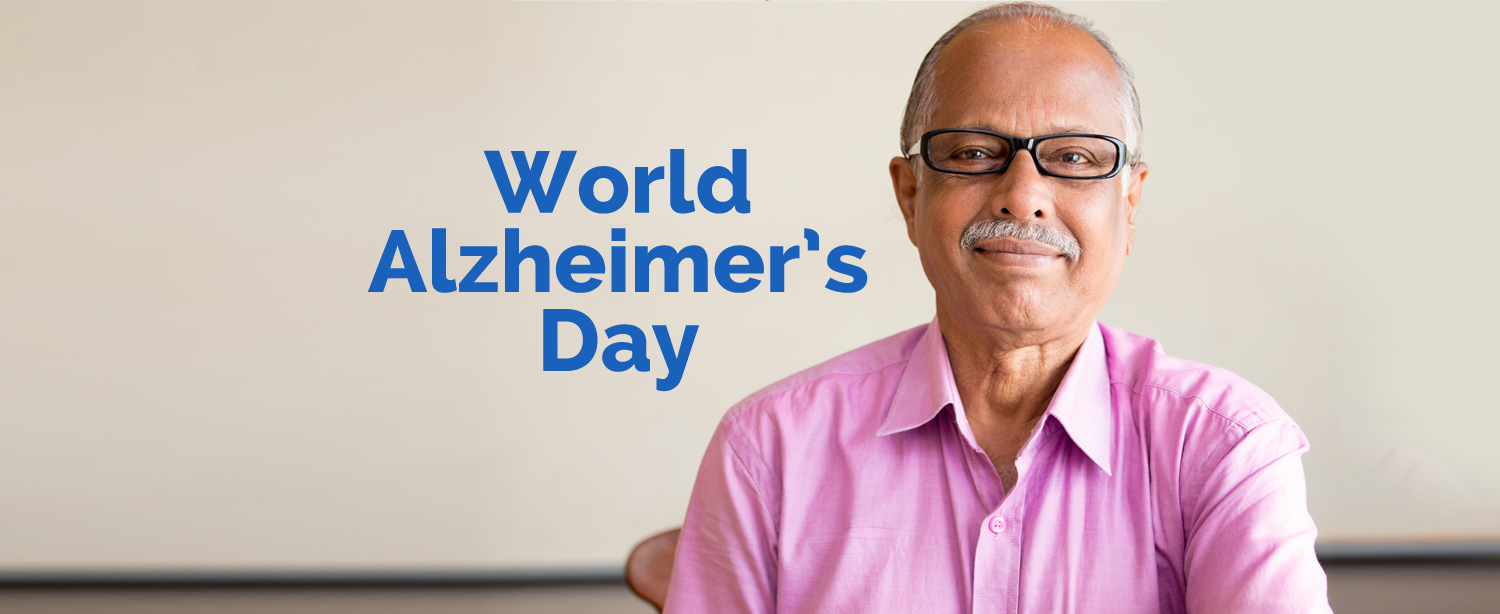Alzheimer’s disease is a neurological disorder in which the death of brain cells causes memory loss and cognitive decline. Alzheimer’s disease tends to develop slowly and gradually worsens over several years. Eventually, Alzheimer’s disease affects most areas of your brain. Memory, thinking, judgment, language, problem-solving, personality, and movement can all be affected by the disease.
Symptoms of Alzheimer’s
Mild forgetfulness can be a normal part of aging. But if memory problems are seriously affecting your daily life, they could be early signs of Alzheimer’s disease. They include:
- Memory loss
- Misplacing things
- Lapse in judgment
- Daily tasks are a challenge
- Times and places are confusing
- Changes in vision
- Words and conversations are frustrating
- Social withdrawal
- Mood changes
These symptoms need further investigation by a neurologist.
Reduce your Alzheimer’s risk
Adopting healthy lifestyle changes may lower your risk of developing Alzheimer’s disease by up to 60 percent. Here is what you can do:
- Physical exercise – Regular physical exercise helps prevent the development of Alzheimer’s and can slow the progression in people who have symptoms.
- Eat healthy – A nutritious diet high in fruits and vegetables, whole grains, lean proteins, nuts, and beans helps reduce your risk of Alzheimer’s.
- Sleep – Protect your brain and lower your risk for Alzheimer’s disease by establishing a bedtime routine and sleeping at least 7 to 8 hours.
Stress – Studies suggest that stress and hypertension increase the risk of both vascular dementia and Alzheimer’s disease. Manage stress better. - Mental stimulation – Reduce Alzheimer’s risk by stimulating your brain. Solve puzzles, crossword, sudoku, or play card games. Keep your brain active.
- Social interaction – Alzheimer’s experts believe that social engagement promotes healthy aging and can help prevent the disease. Socialize with family and friends, participate in community activities, learn a new skill to help keep your mind engaged.
- Quit Smoking – Smoking is harmful to your body and your brain.
- Medical conditions – Problems like diabetes, high blood pressure, and high cholesterol can increase your risk of getting Alzheimer’s later in life.
- Maintain a healthy weight – Maintaining a healthy weight with exercise and a proper diet can help reduce your risk of getting Alzheimer’s.
Living with Alzheimer’s
There isn’t a cure yet for Alzheimer’s disease. But certain medicines help slow down the symptoms of Alzheimer’s and make the disease easier to live with. There’s a lot you can do to help someone you care about with Alzheimer’s enjoy their day-to-day activities. Even though people with the disease can get frustrated or confused easily, take these steps to help them feel calm and safe. Here are a few helpful tips:
- Keep a routine: People with Alzheimer’s tend to prefer a familiar schedule and settings. Changes can be hard for them.
- Limit distractions: People with Alzheimer’s can be easily overwhelmed by crowds and noise. Gather in small groups, avoid crowded places, keep the TV off during other activities.
- Be flexible: Over time, a person with dementia will become more dependent. To reduce frustration, stay flexible, and adapt your routine and expectations as needed.
- Create a safe environment: Dementia impairs judgment and problem-solving skills, increasing a person’s risk of injury.
- Make decisions for your loved ones: People with Alzheimer’s may get flustered when they have to make decisions. It is okay for the caregiver to take some control of everyday choices.
Alzheimer’s in India
In India, more than 4 million people are estimated to be suffering from Alzheimer’s and other forms of dementia, giving the country the third highest caseload in the world. India’s dementia and Alzheimer’s burden is forecast to reach almost 7.5 million by the end of 2030. It is time we increase the awareness of this disease and reach out for medical help.
Concerned about a loved one suffering from Alzheimer’s? Our specialists at the Alzheimer’s clinic offer a comprehensive screening and care program for Alzheimer’s and other memory disorders, including neurology consultation, physical and cognitive rehabilitation, and psychotherapy. Please visit:
https://www.kokilabenhospital.com/departments/clinicsatkh/alzheimersclinic.html
Tags: Alzheimer’s Clinic, Alzheimer’s Specialists, Alzheimer’s Symptoms, Memory Disorders, Neurological Disorder, Psychotherapy


